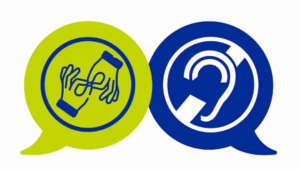Interpreting medical terms is, naturally, one of the key parts of being a medical interpreter. While it’s not necessary that you be a medical professional, a medical interpreter need to have foundational knowledge. The ability to translate medical terms in any circumstance is crucial. Through proper preparation and self-study, medical terms is a breeze for even beginner interpreters.

The Importance of Precision while Interpreting Medical Terms
When approaching medical terms in an interpreting setting, the key factor is precision. Being precise with your language helps both non-English speaker and provider avoid misunderstandings and maintain flow. Being an interpreter is a delicate balance: as you’re acting as a language conduit, it’s understandable that you command attention. However, the goal of an interpreting session is that the interpreter effectively disappears. This allows for an easy conversation, back and forth, as if both parties spoke the same language. There’s a rare magic when this happens and having a command of medical terms is the first step.
Language precision is also a safety measure in the context of an interpreting session. Interpreting medical terms as accurately as possible helps the non-English-speaking patient receive the highest quality of care. A difficulty that interpreters often face is that appointment duration is constant regardless of language-support needs. Despite the fact that conversation through an interpreter takes twice as long, the doctor has the same amount of time. This puts non-English speakers at a distinct disadvantage and adds pressure to interpreting sessions. Understanding how to translate medical terms quickly and precisely saves time and boosts patient and provider efficiency. A good interpreter is the best tool a non-English-speaking patient can have in their quest for medical care.
So how should you translate medical terms? Where to begin? We’ve created a couple points to help you as you start your career as a medical interpreter.
How to Translate Medical Terms:
1) Be prepared with foundational knowledge:
The first step to translating medical terms is to prepare yourself before the assignment. If you’re working with an agency, your project manager is your best resource. They’ll let you know if there’s any specialized terminology you should study. Otherwise, use your best judgement: if you know you’re going to interpret at an Ophthalmology appointment, study eye vocabulary. Basic anatomical knowledge is your best friend when attending a diagnostic appointment. When first starting as a medical interpreter, an understanding of Greek and Latin roots helps as well. Knowing linguistic roots helps you make quick and accurate on-the-spot translations.
2) Interject when necessary to ask/clarify:
If you’re unsure of a word or phrase, err on the side of caution. The best course of action is to interject. Say, “Excuse me, the interpreter would like to ask for clarification.” Remember to stay in the third person when talking about yourself as the interpreter. Always interpret everything you say to everyone present. Ask the provider for clarification, interpret to the target language, thank both parties, and resume the session. It’s better to interject than to make a grave error in judgement, especially in a medical setting.
3) Keep a dictionary on hand:
Along with interjecting when necessary, it’s also handy to keep a dictionary in-session. Using a dictionary allows you to find a precise, detailed translation. As with interjecting to ask for clarification, always interject to let both parties know you need to use the dictionary. At Global Arena, we recommend a paper/book dictionary rather than using one on your phone. Clients tend to prefer this. Though they’re aware that you’re only using your phone for the dictionary app, having your phone out isn’t professional. One of our most common client complaints concerns interpreters using phone apps instead of book dictionaries during interpreting sessions.
4) Lower the register:
As you become more confident with medical interpreting and translating medical terms, lowering the register is a tool you’ll use. Lowering the register is only appropriate in non-legal settings, so it’s perfect for medical interpreters. To lower the register is to take complicated or technical language and interpret it to “common language.” For example, if a doctor prescribes “acetaminophen,” it’s appropriate to interpret this to “Tylenol” if your culture uses that name. If a doctor refers your patient to an “otorhinolaryngologist,” you can interpret this as “ear, nose, and throat doctor.” This helps you remain unobtrusive in the session while still interpreting accurately.
5) Take notes effectively:
Note-taking is another skill you’ll use during your career as a medical interpreter. Unlike “traditional” stenographic note-taking, interpreting note-taking isn’t about transcribing speech word-for-word. Instead, you’ll create linguistic “stepping stones” to help you interpret effectively. Note medications, unfamiliar terminology, names, dates, addresses, times, and instructions. Always take notes in the language to which you’ll be interpreting rather than the source language. This helps you build a cohesive guide from which you can interpret fluently. Noting medical terms also often helps you remember the full meaning—and if you can’t, ask the provider.
Global Arena’s Medical Terminology eLearning Course
If you’re looking for a good foundational knowledge of medical and anatomical terms, Global Arena has you covered. We’ve created a three-hour, self-paced, interactive course to give you a basic understanding of medical terms and conditions. The course includes a certificate of training upon successful completion and lifetime access to updates and new information. You’ll also receive our medical terms glossary, complete with spaces to add terms in your target language. Click on the link to start learning today Medical Terminology for Interpreters!




